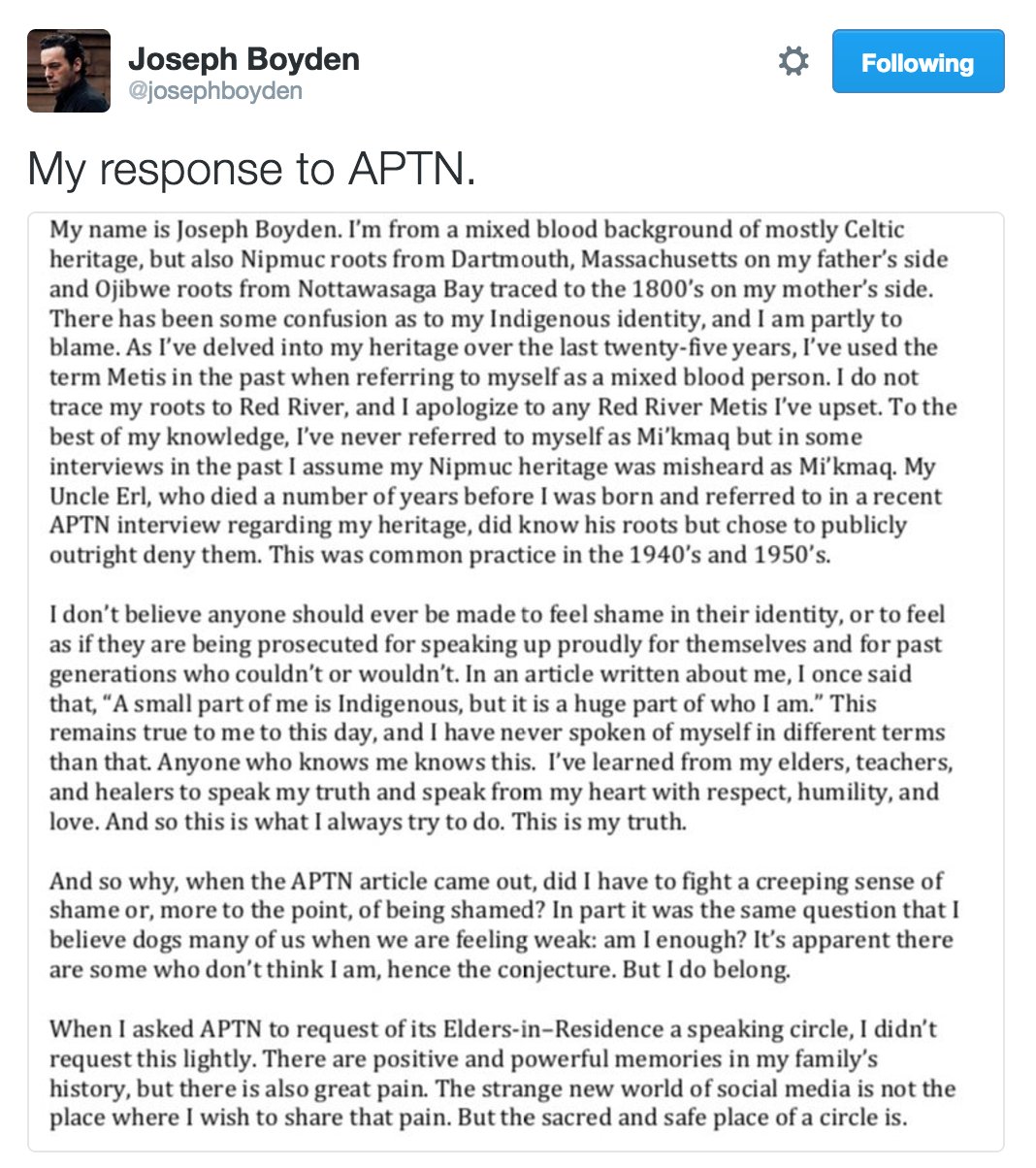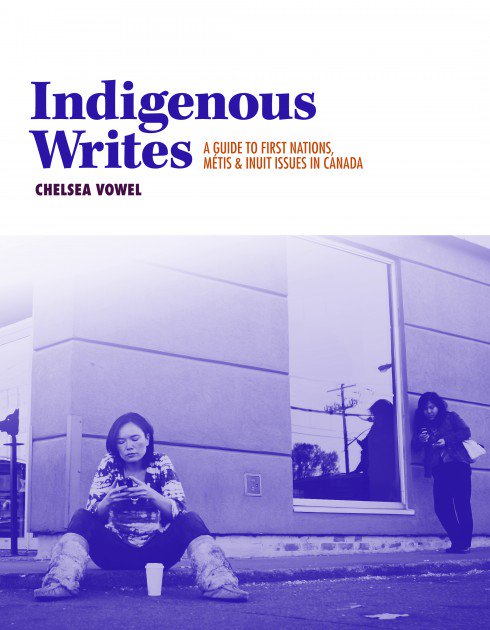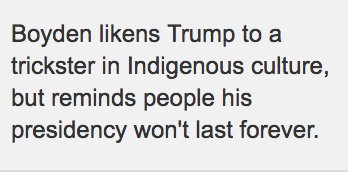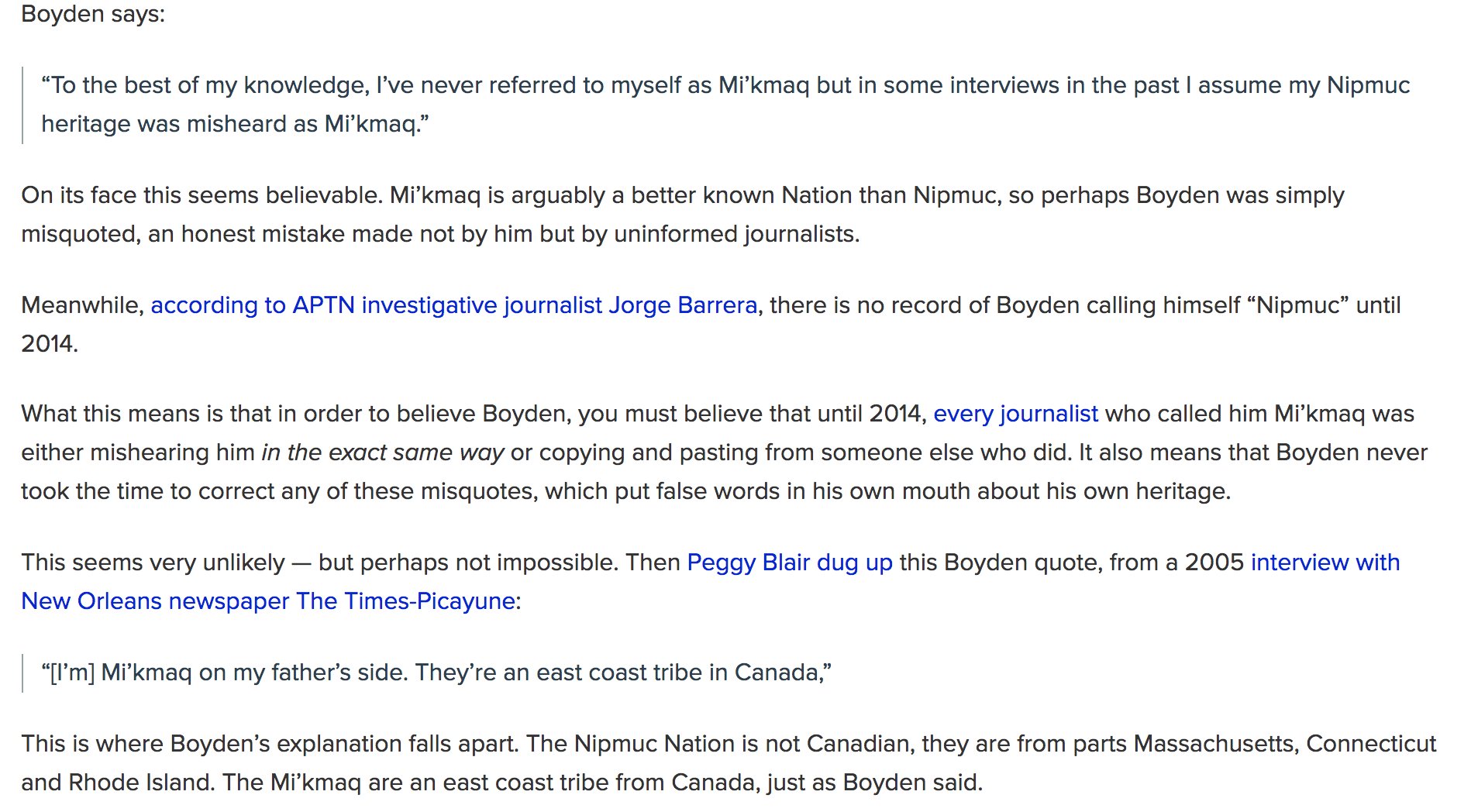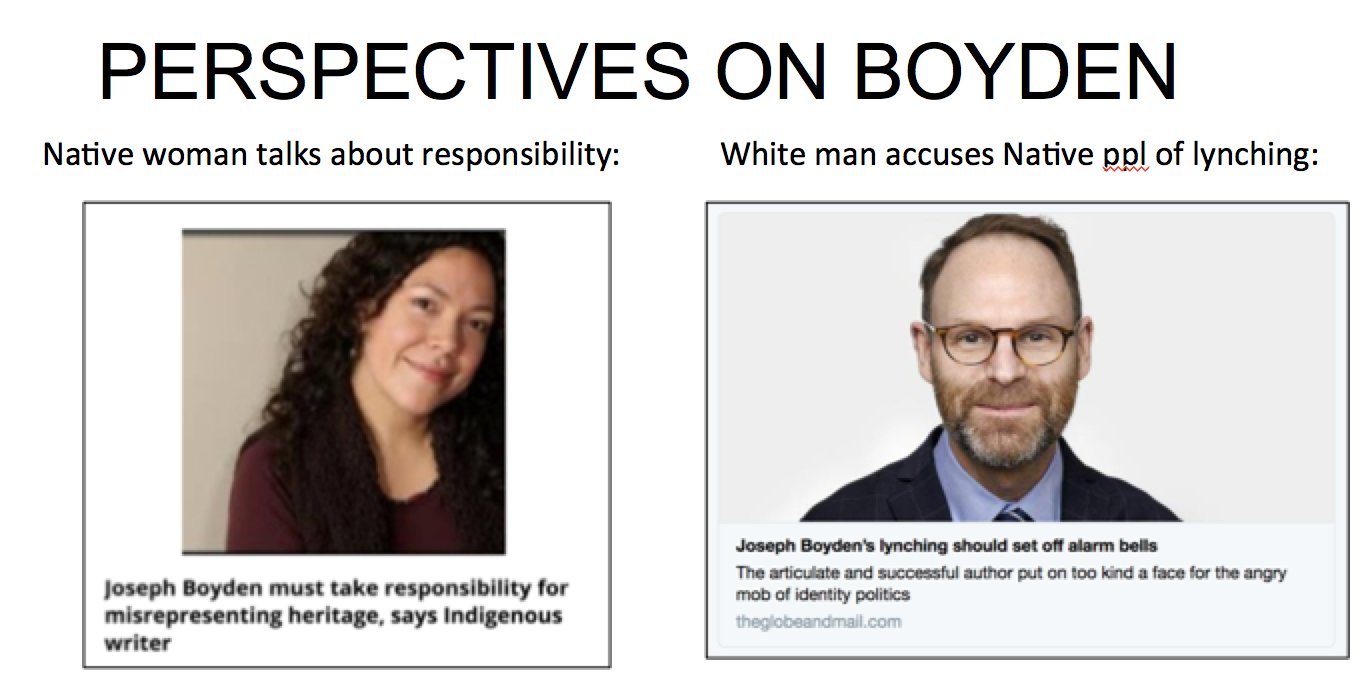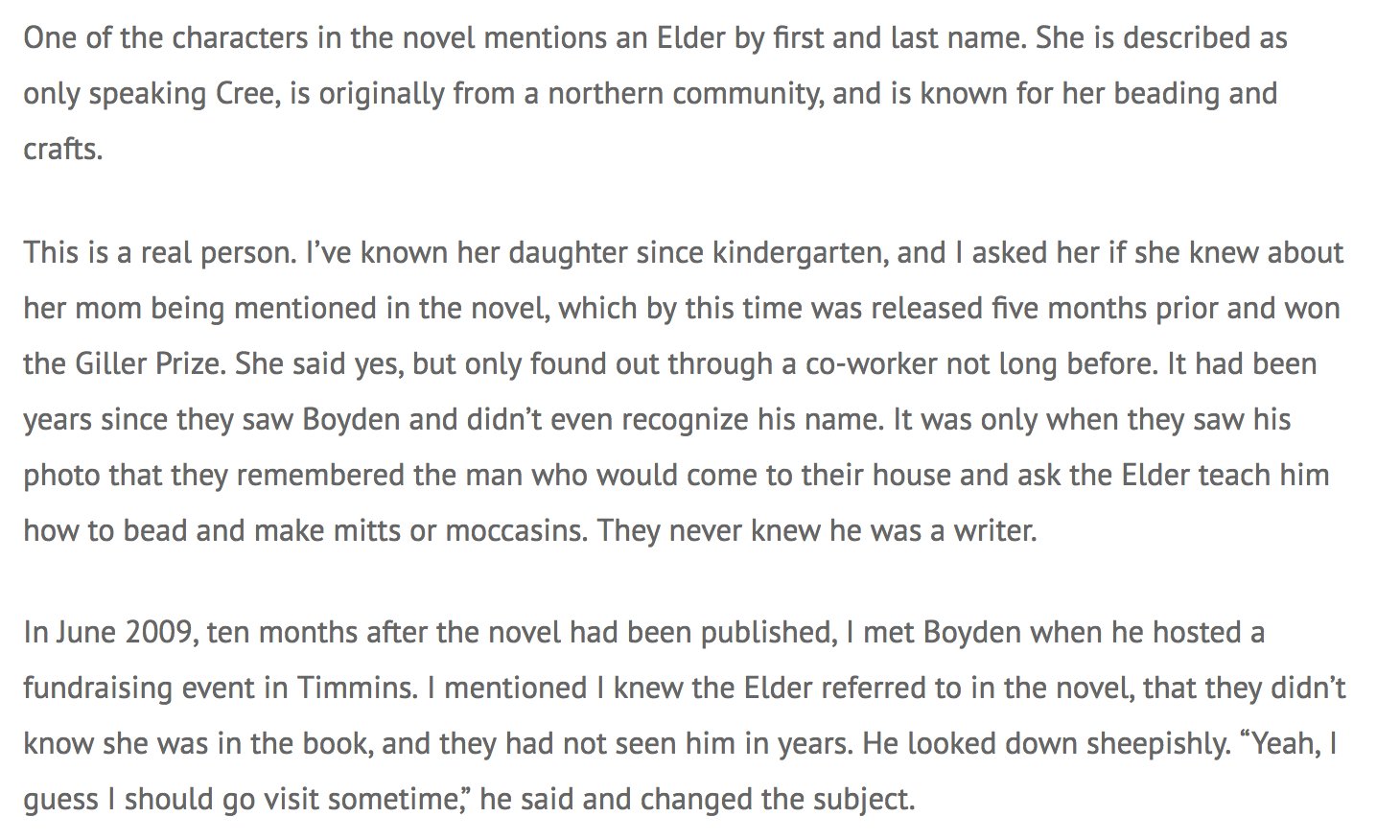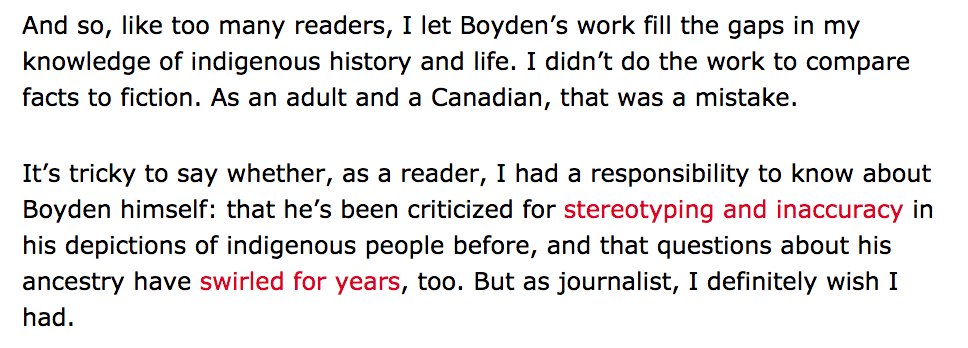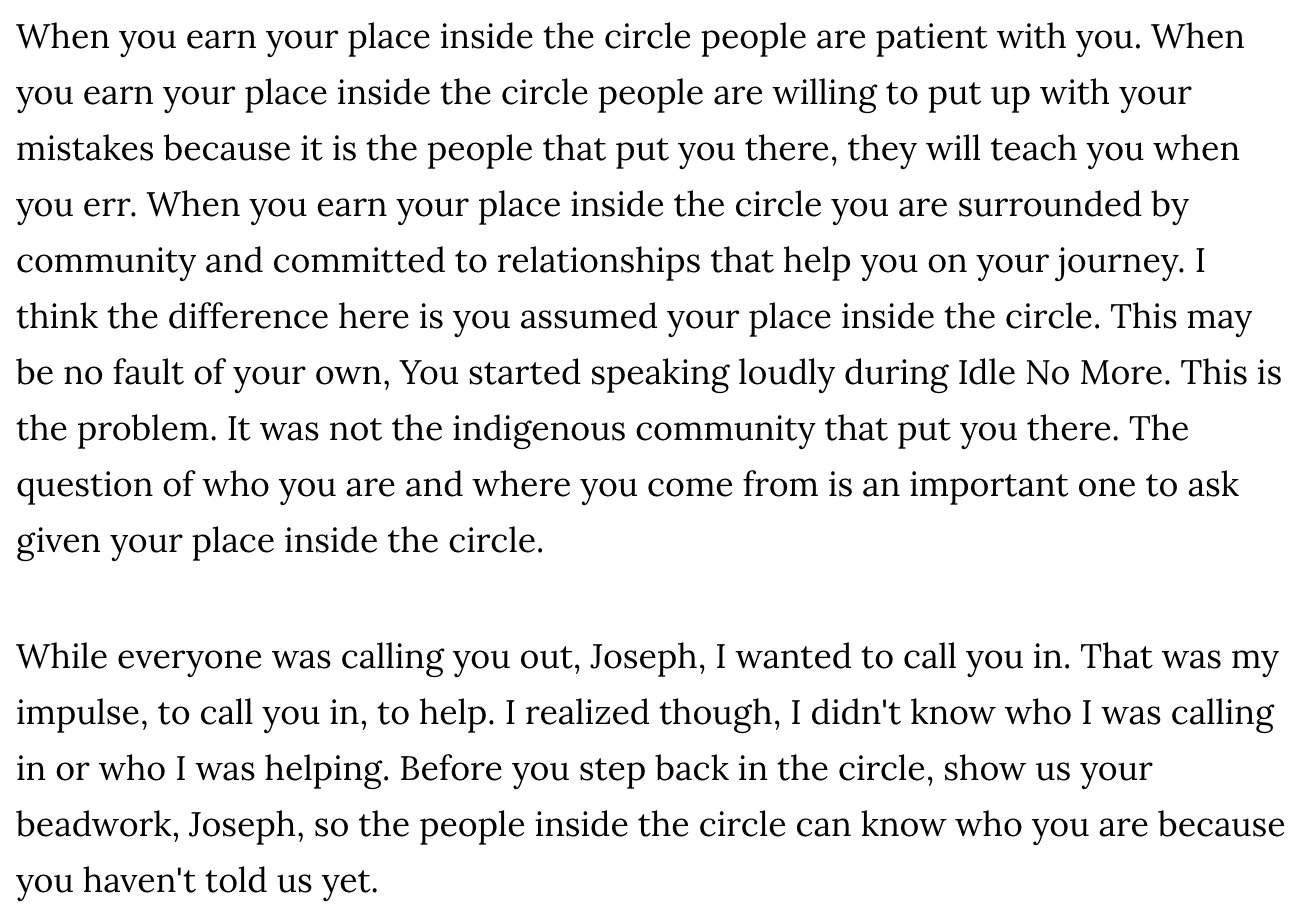Editor's note, Oct 10, 2019: Sometime in 2018, Roanhorse removed Ohkay Owingeh from her website. She was adopted. Through an investigator she found her birth mother, who told her that she was from Ohkay Owingeh. I do not know why Roanhorse removed that information. On October 5, 2019, Adrian Jawort published a defense of Roanhorse. I disagree with Jawort's conclusions but am including a link to it below with the others. --Debbie
_____
I want Native children to have books that respect who they are, as Native children. I want Native writers to experience success in the publishing world, because that translates to opportunities for more Native writers. And I want Native writers to be successful in every genre--including science fiction and fantasy!
But, there are things that don't belong in books. Let me explain.
I was raised with a deep respect for our ceremonies and our religious ways of being. Wrapped up in that respect is a commitment to protect that knowledge. I can easily see and hear elders telling us, as children, “don’t tell your teacher or your friends ...” Their instructions are based on hundreds of years of experience with exploitation and misrepresentation that were--are--harmful to us as individuals, as people of a community, and as a tribal nation.
Our elders, in essence, drew a curtain. A curtain between what can be disclosed, and what cannot be disclosed. It protects us. That instruction is a guiding principal that I bring to my study of children's and young adult literature. I lost sight of it, recently, and am addressing that failure with this blog post. And I am apologizing to friends and colleagues who are Navajo.
Whenever I pick up a book, the first thing I do is look at the author. If the author is Native, I relax because I assume that the author is knowledgeable about their nation and that they will only disclose what can be disclosed. If the author is not Native or not of the nation the book is about, I look to see if there’s an indication that the book was looked at by someone with the expertise necessary to spot factual errors--and problems of disclosure, too.
Back in February of 2018, I read and reviewed Legends of the Lost Causes by Brad McLelland and Louis Sylvester (they are not Native writers). I questioned their use of religious aspects of Osage and Abenaki people. So, I did not recommend the book. I noted that the book was blurbed by someone from the Osage Nation but that I had concerns and questions, nonetheless. Then in May, 2018, Elizabeth Bird at School Library Journal, published Sensitivity Readers, Cultural Considerations, and Legends of the Lost Causes. In it, she posed some of my questions to Jessilyn Hudgins of the Osage Nation's Cultural Center. Hudgins replied that McLelland was willing to change or take out anything that she wasn't comfortable with. Because Hudgins is of that nation, her feedback is important. It gives the authors and the publisher a green light to continue with the Osage content in the other books in that series.
I still have questions, though, because I know that Indigenous people fall on a continuum of what is or is not ok to share. Where any one of us falls is based on the teachings we were given, and where we were raised. Many of us do not grow up on our reservations, and even if we do, some of us make different choices about how we will speak (or not) about our religious ways. In other words, within our nations, we don't all come out at the same place with respect to what we think can be shared. In that continuum, I'm over on the end that says 'do not talk about this at all.'
I started talking with Rebecca Roanhorse on Twitter about three years ago. In those conversations and on her website, I learned that she is Ohkay Owingeh (San Juan Pueblo) and Black, and married to a Navajo man. (Update on July 19, 2019: Roanhorse no longer lists Ohkay Owingeh on her profile.) I also learned that she is a writer, working primarily in science fiction and fantasy.
Somewhere along there I learned that she was working on a book with a Navajo protagonist. I learned the book was meant for the adult market, but because of the age of the protagonist, I wanted to see it. Tim Tingle's House of Purple Cedar wasn't marketed for teens. Neither was Louise Erdrich's The Round House or Marcie Rendon's Murder on the Red River. But--I'd hand those books to an older teen in an instant. So, I wanted to see Roanhorse's Trail of Lightning. I also learned that Navajo people were working with her on the Navajo content. Because of that, I assumed that she did not have anything in the book that should not be disclosed. When I got the book, I liked what I read and said so, on Facebook and on Twitter. When invited to do so, I wrote a review of it for Barnes and Noble's website.
For that review, I began with the work of Dr. Rudine Sims Bishop. I find her metaphor -- that books can be windows, mirrors, or sliding glass doors -- tremendously useful. White children have many mirrors. Native children have very few, and some of them are cracked and more like those fun house mirrors at carnivals. This graphic (credit for the infographic is to Dr. Sarah Park Dahlen, Molly Beth Griffin, and David Hyuck) makes the point quite well:
See how many mirrors the White child has? Over seventy percent of the books received at CCBC in 2015 featured White characters, and only .9% featured Native characters. Even worse--the books included in that .9% are ones with stereotypes and otherwise bad representations! So--not only is the mirror the Native child holds small, it is one that distorts who Native people are.
In recent writings, I've begun adding a curtain to Dr. Bishop's metaphor. It is similar to the line of disclosure. For some things, we draw a curtain on our windows. There are things we do not share and do not wish to share. (See, for example, an excerpt of an article I wrote for Language Arts in 2018).
As I read Trail of Lightning, I recognized the places Roanhorse was writing about. The way she wrote about the setting struck me as a mirror. A splendid one, in fact. That's what I titled my article at Barnes and Noble: "A Splendid Mirror for Indigenous Readers." I was wrong.
Roanhorse's book is published by Saga Press--an imprint of Simon & Schuster--which is significant. Simon & Schuster is one of the "Big Five" publishers in the United States. Most Native writers are published by smaller publishing houses. Getting published by one of the Big Five means way more visibility than is otherwise possible.
In recent writings, I've begun adding a curtain to Dr. Bishop's metaphor. It is similar to the line of disclosure. For some things, we draw a curtain on our windows. There are things we do not share and do not wish to share. (See, for example, an excerpt of an article I wrote for Language Arts in 2018).
As I read Trail of Lightning, I recognized the places Roanhorse was writing about. The way she wrote about the setting struck me as a mirror. A splendid one, in fact. That's what I titled my article at Barnes and Noble: "A Splendid Mirror for Indigenous Readers." I was wrong.
Roanhorse's book is published by Saga Press--an imprint of Simon & Schuster--which is significant. Simon & Schuster is one of the "Big Five" publishers in the United States. Most Native writers are published by smaller publishing houses. Getting published by one of the Big Five means way more visibility than is otherwise possible.
So, I was happy on several counts. It looked like what I--as a Native woman and scholar--want to see! As evident on Twitter (update on July 19, 2019: Charlie Scott's supported it on Twitter and in October of 2018, wrote an article about it), there are Navajo readers who are taken with it, too. In some ways, the representations Roanhorse offers to readers of this genre are terrific. In most books set in the future, Indigenous people are completely missing. Roanhorse centers this story in Native spaces and features Native people.
But, I started to hear directly from Navajo friends and colleagues. They are not at all happy with Trail of Lightning. From what I understand, Roanhorse crossed their lines of disclosure. If she had done this book using Pueblo religion, they said, she'd be called out for doing that. They're right. In fact, I'd be one of the people saying no to that book. And I'm grateful to them for, in essence, calling me out about my recommendation of Trail of Lightning.
This situation is uncomfortable for them, for me, and I am sure it will be uncomfortable for Roanhorse, too, when she reads this post. From her interviews online, she said that she knows that there are things within Ohkay Owingeh that she would not share. This is a concept she understands. It'd be easier to just ignore this whole thing and keep disagreements amongst Native scholars, critics, and readers behind that curtain, too, but that kind of silence does not help writers, editors, and readers grow in their understanding of who Indigenous people are and how some of us feel about the ways our stories are used--even if the person using our ways is Native.
There are many conversations taking place within Navajo circles. Some may write a letter (or letters) about Trail of Lightning. When those letters appear, I will add links to them (update on July 19, 2019: see the links at the bottom of this post). In the meantime, I invite you to submit comments or write to me directly with your thoughts or questions about what I've written above.
A quick note on some of the conversations I've had, that I'll summarize here as a Q&A. If they don't make sense, let me know.
Question 1: "What about other writers who have done this, like Tony Hillerman? Are people upset with him, too? And will they talk about his books?"
Question 2: "Are some of these people jealous of Roanhorse's success?"
Question 3: "Are people being racist because she's Black?"
Question 4: "What about the Navajo people who are really liking the book? Are they wrong for liking it?"
Question 5: "What exactly is the problematic content?"
Links to sites (arranged by date) where Native writers and scholars discuss or write about this issue. Also includes links to videos or articles where the topic was discussed by Roanhorse.
June 6, 2018. Video. Institute of American Indian Art, Low Rez MFA. Rose Simpson Craft Lecture. (Link added here on Oct 1, 2018.)
June 25, 2018. Video. Institute of American Indian Art, Low Rez MFA. Panel discussion, Fall 2018: Cultural Stakes with panelists Santee Frazier, Toni Jensen, James Thomas Stevens, and Kimberly Blaeser. (Link added here on Oct 1, 2018.)
July 1, 2018. Video. Q&A at the Jean-Cocteau Cinema in Santa Fe, NM, on June 26th, 2018. Rebecca Roanhorse Reads from Trail of Lightning and Takes Audience Questions. (Link added here on Oct 1, 2018.)
November 6, 2018. Trail of Lightning is an appropriation of Diné cultural beliefs, by the Saad Bee Hózhǫ́ (Diné Writers' Collective), published at Indian Country Today on Nov 4, 2018.
November 15, 2018. Does the letter from the Diné Writers Collective Mark a Turning Point? by Debbie Reese at AICL.
November 23, 2018. Guest column: New novel twists Diné teachings, spirituality by Jennifer Rose Denetdale, published in Navajo Times on November 22, 2018.
April 30, 2019: Muscogee writer, Michael Thompson, on interactions with bookseller when he shared concerns about Trail of Lightning
October 10, 2019: The Dangers of the Appropriation Critique by Adrian Jawort, in The Los Angeles Review of Books. (As noted in the editor's note at the top of this post, I disagree with Jawort.)
This situation is uncomfortable for them, for me, and I am sure it will be uncomfortable for Roanhorse, too, when she reads this post. From her interviews online, she said that she knows that there are things within Ohkay Owingeh that she would not share. This is a concept she understands. It'd be easier to just ignore this whole thing and keep disagreements amongst Native scholars, critics, and readers behind that curtain, too, but that kind of silence does not help writers, editors, and readers grow in their understanding of who Indigenous people are and how some of us feel about the ways our stories are used--even if the person using our ways is Native.
There are many conversations taking place within Navajo circles. Some may write a letter (or letters) about Trail of Lightning. When those letters appear, I will add links to them (update on July 19, 2019: see the links at the bottom of this post). In the meantime, I invite you to submit comments or write to me directly with your thoughts or questions about what I've written above.
A quick note on some of the conversations I've had, that I'll summarize here as a Q&A. If they don't make sense, let me know.
Question 1: "What about other writers who have done this, like Tony Hillerman? Are people upset with him, too? And will they talk about his books?"
My answer: Yes, I've talked with Navajo people before about Hillerman's books, and yes, they object to what he did, but I don't know if there are plans to talk about his books within the context of Trail of Lightning.
Question 2: "Are some of these people jealous of Roanhorse's success?"
My answer: That's possible, but the concerns are from a wide range of Navajo people, and I think that attributing the objections to jealousy rather than as serious concerns about the content is not fair.
Question 3: "Are people being racist because she's Black?"
My answer: That's possible, but attributing objections to racism is also asking us to ignore the serious concerns about the content.
Question 4: "What about the Navajo people who are really liking the book? Are they wrong for liking it?"
My answer: No, I don't think they're wrong for liking it. They may not know that traditionalists within the Navajo Nation do not think this content should be shared. They may change their minds later--or they may reject the idea of keeping some kinds of information private.
Question 5: "What exactly is the problematic content?"
My answer: I would not point out the specific problematic content if the book had violated Pueblo lines of disclosure, because doing that would do precisely what the author has done. I do not know how Navajo people will describe their concerns with it. When I see them, I will link to them.
_________
Links to sites (arranged by date) where Native writers and scholars discuss or write about this issue. Also includes links to videos or articles where the topic was discussed by Roanhorse.
June 6, 2018. Video. Institute of American Indian Art, Low Rez MFA. Rose Simpson Craft Lecture. (Link added here on Oct 1, 2018.)
June 25, 2018. Video. Institute of American Indian Art, Low Rez MFA. Panel discussion, Fall 2018: Cultural Stakes with panelists Santee Frazier, Toni Jensen, James Thomas Stevens, and Kimberly Blaeser. (Link added here on Oct 1, 2018.)
July 1, 2018. Video. Q&A at the Jean-Cocteau Cinema in Santa Fe, NM, on June 26th, 2018. Rebecca Roanhorse Reads from Trail of Lightning and Takes Audience Questions. (Link added here on Oct 1, 2018.)
November 6, 2018. Trail of Lightning is an appropriation of Diné cultural beliefs, by the Saad Bee Hózhǫ́ (Diné Writers' Collective), published at Indian Country Today on Nov 4, 2018.
November 15, 2018. Does the letter from the Diné Writers Collective Mark a Turning Point? by Debbie Reese at AICL.
November 23, 2018. Guest column: New novel twists Diné teachings, spirituality by Jennifer Rose Denetdale, published in Navajo Times on November 22, 2018.
April 30, 2019: Muscogee writer, Michael Thompson, on interactions with bookseller when he shared concerns about Trail of Lightning
October 10, 2019: The Dangers of the Appropriation Critique by Adrian Jawort, in The Los Angeles Review of Books. (As noted in the editor's note at the top of this post, I disagree with Jawort.)
June 24, 2020: The Elizabeth Warren of the SciFi Set: Author Faces Criticisms for Use of Tribal Traditions, article by Acee Agoyo in Indianz.


